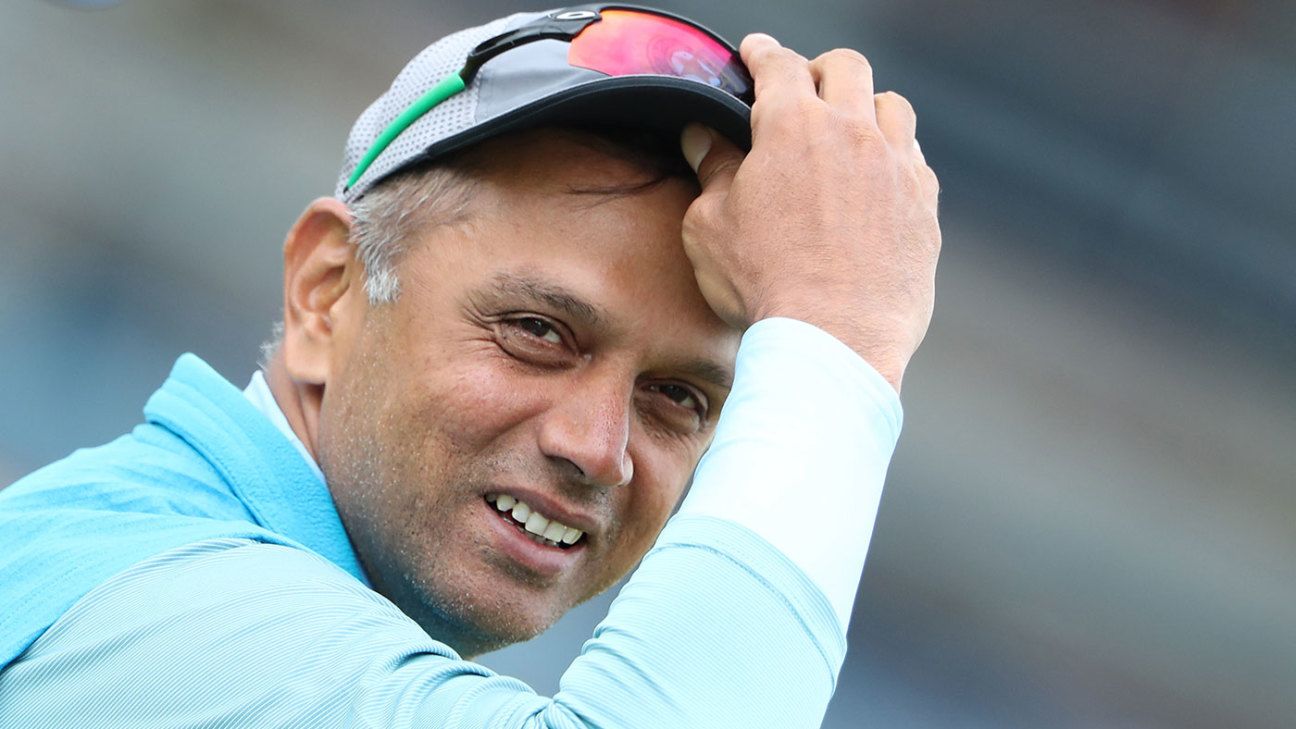
Rahul Dravid, the former India captain and India A coach, believes that data can have a positive impact on players' performances and "challenge" them to get better. He also explained how modern-day cricketers have embraced data in a chat involving Manoj Bedale, the co-owner of Rajasthan Royals, during the book launch of A New Innings.
"It [data] got more specific and sort of nuanced if you can use that word and I think it made the game a lot better," Dravid said. "I think it also made the players sit up and take notice as well. I think when data started coming in, people started using data to analyse performances, there might have been a certain amount of resistance from the players at that stage because maybe the data wasn't that good of a quality as well. But, as data has got better and better, you can see players have bought into it and players are identifying it.
"Say for any young player who has played in the IPL, there has obviously been a lot of data and analysis done on his game. So, somebody says you've been very good in the powerplay, but once when the spinners come on, your strike rate has dropped by 20 percentage points or the strike rate has come down considerably, I think therein lies an opportunity for the young player to use that data and develop his game to get better. So, the more and more I interact with the younger players, I see that there is a lot more willingness to embrace the data and to understand how it can help them and how they can get better."
Dravid said that he would've also been open to improving his T20 game had there been more detailed data analysis during his playing career.
"I'd like to believe that I'd have seen it positively as an opportunity to improve and grow. It would have probably made me a better player. I mean I was a good T20 player but I wasn't that good a T20 player. If there had been a lot of data giving me analysis on what I can improve and areas I can improve, I'd have at least looked at it positively and looked to get the best I can get out of myself."
Dravid also reckoned that decision-making would largely revolve around the skill of the player as opposed to instinct while citing the example of T Natarajan who excelled at hitting the blockhole in IPL 2020. The Tamil Nadu and Sunrisers Hyderabad left-arm seamer bowled 71 yorkers in the tournament, according to ESPNcricinfo's ball-by-ball data, more than double that of the next best.
"Look at the example of Natarajan, for example, a young bowler from Tamil Nadu. I'm sure that over the last few years, he has seen the value that a yorker brings and he's seen the importance of a yorker," Dravid said. "And he has gone away and practised it. He has developed that skill and that skill has got him into the Indian team. So, it's just phenomenal to see how the data has come along and how people are now beginning to use it.
"A lot of decisions that were made on gut instinct or reputation will slowly start getting to be made on your ability to execute those skills for specific balls or specific situations. It's going to challenge a lot of players because the data is going to show them things that some probably might not want to accept."















 Phone: (800) 737. 6040
Phone: (800) 737. 6040 Fax: (800) 825 5558
Fax: (800) 825 5558 Website:
Website:  Email:
Email: 






